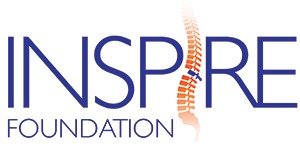
The UK’s Masonic Charitable Foundation has awarded £65,000 to the Inspire Foundation to fund a research project which aims to improve the quality of life and independence of people with spinal cord injuries.
The research project will be led by young research scientist, Sean Doherty who broke his neck in a mountain bike accident in 2008 at the London Spinal Cord Injury Centre based at the Royal National Orthopaedic Hospital in Stanmore. Sean broke his neck in a mountain bike accident in 2008 and subsequently lives with Tetraplegia. Sean is originally from Gloucestershire and studied at the University of Cardiff.
With his co-research scientists, Sarah Knight and Anne Vanhoestenberghe, Sean is researching the Neuromod project, which aims to develop wearable stimulation devices to control bladder and bowel as an alternative to pharmaceutical therapies to control bladder and bowel.
Restoration of bladder and bowel function is a top priority for patients who have suffered a life-changing spinal cord injury. Although the inability to walk is often assumed to be the most challenging consequence of such an injury, the loss of control of bladder and bowel is often the most difficult to manage, and can have a persistent and detrimental effect on health, welfare and quality of life.
Trevor Koschalka, a Freemason from London who visited the research on behalf of the Masonic Charitable Foundation, says, “We hope that the grant will enable Sean and the rest of the team to successfully develop a wearable device to control bladder and bowel function and improve the quality of life of spinal cord-injured people.”
Rory Steevenson, director at Inspire Foundation, says, “One of my biggest worries with our research programme is whether or not we can afford to run projects as we receive no government funding. The Masonic Charitable Foundation grant has covered the remaining cost of Neuromod and will guarantee it can continue to full term.”













